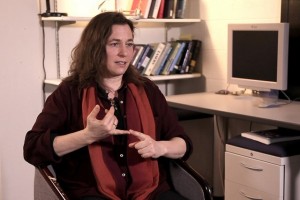The Big Bang Theory
Theoretical Physicist Ugo Moschella on the history of the Universe, symmetry breaking and the Electroweak theo...
How are the changes of the eccentricity of the Earth’s orbit related to the greenhouse effect? How can we measure the activity of the Sun by measuring cosmic rays? What causes the changes in solar activity? These and other questions are answered by Professor of Faculty of Natural Sciences, The Grantham Institute for Climate Change, Joanna D. Haigh.
When we think about the climate and we think about the energy of the climate, it’s essentially all coming from the sun. There is no other source of energy, the amount of energy coming out from the center of the Earth is tiny. So all the energy that’s forcing the climate system is coming from the sun. When we are thinking about what causes climate change it’s quite interesting to think about how changes in the sun or, indeed, the solar radiation reaching the Earth can affect the climate.
In the 19th century there was a big activity called sunspottery where there was a lot of statistical analysis of the numbers of sunspots related to various meteorological parameters, the most famous of which was by William Herschel, who was a very famous and a very substantial scientist. He did some work on how the price of wheat on the London stock exchange responded to sunspot numbers. The price of wheat, obviously, corresponding to supply of wheat corresponding to climate, so he was asking a very interesting question. I think, the statistics of his results are not very robust.
One very interesting aspect of solar variability is that although the total radiation is changing over the 11-year cycle by, perhaps, a few tenths of one percent, so a very small amount, actually, it’s not the same at all wavelengths of the solar spectrum. That’s true in the visible, where, of course, most of the energy in the solar spectrum is coming in, but in ultraviolet wavelengths the variation is much larger.

Theoretical Physicist Ugo Moschella on the history of the Universe, symmetry breaking and the Electroweak theo...

Physicist Susanne Yelin on the perfect lens, the way to achieve negative indexes of refraction, and the challe...

Chemist Mark Tuckerman on classical nucleation theory, rare events phenomena, and energetic balance in the mel...